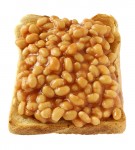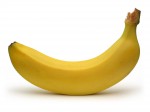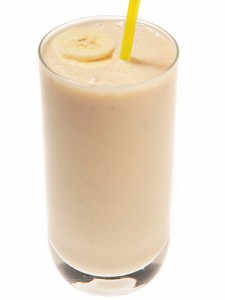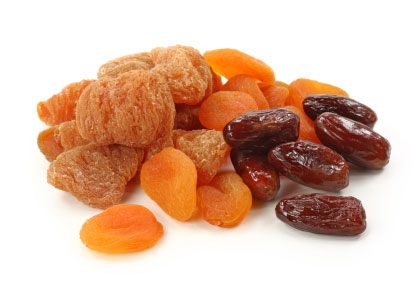What you eat and drink around training will help to improve your performance, reduce your risk of injury and support the recovery and repair of your body between training sessions.
The following 3 steps will optimise your fuelling and recovery.
Step 1 – Begin Well Fuelled and Hydrated
Good fuelling and hydration before training enhances performance, improves co-ordination and maximises gains to training. Aim to have a meal 2-4 hours before training or a snack 1-2 hours before.
Useful pre-exercise meals or snacks include:
Meals

- 2 cups wholegrain breakfast cereal with 200ml low fat milk
- 1 sandwich (2 slices bread) or roll with 45g chicken/ham and salad
- 2 slices of toast with baked beans
- 1 cup pasta with meat, vegetables and a tomato-based sauce
Snacks

- Cereal bar
- Fresh fruit
- Small handful of dried fruit
- 1/2 soda farl or 2 small slices wheaten bread with honey or jam
If you don’t have time for a full meal, for example, before early morning sessions or competitions, try a liquid meal. These are easily digested and empty from the stomach with ½ hour.
300-500ml of the following are good liquid meals:

- Milkshake (low fat) / flavoured milk
- Smoothie (made with 200ml low fat milk and 1-2 pieces of fruit)
- Ready to drink high protein /high carbohydrate shake
- Drinking yoghurt
Step 2 – During Your Session, Replace Fuel and Fluids
Fluid and energy requirements will vary depending on the intensity and duration of your training session. Carbohydrate (fuel) intake during exercise is only required for intense cardio training that lasts more than 1 hour.
Useful carbohydrate foods and fluids include:

- Banana
- Cereal bar
- Jelly beans / jelly sweet
- Dried fruit (small handful)
- Sports drinks
Stay hydrated
Make sure you focus on what you drink during a training session and aim to stay hydrated.
Any weight lost during a training session will be from sweat and respiration fluid loss. If you lose 1 kg during a training session, this equals 1L of fluid. To replace these losses you need to drink about 1.2L of fluid.
Step 3 – After exercise, kick start recovery by eating a high protein, high carbohydrate snack within 30mins of finishing
The 30 minutes after training is the best time to encourage muscle repair and replace glycogen (fuel) in your muscle. Aim to have 10-15g protein and 40-60g carbohydrates in this period.
Combine foods from the lists below to make a great recovery snack:
One Item from the following High Carbohydrate Foods (50g each)
- 700-800ml sports drink
- 2 slices toast/bread with jam or honey
- 1 large bap or bread roll
- 1 medium soda farl
- 2 slices malt loaf
- 3 scotch pancakes
- 2 cereal bars
- 2 bananas
- 2x30g bags Snack-a-Jacks
- 300g (large) baked potato
And
One Item from the following High Protein Foods (10g each)
- 30g of lean red meat or skinless chicken breast
- 50g tinned tuna/salmon or cooked fish
- 30g cheese
- 2 eggs
- 120g tofu
OR Use a combination of the carbohydrate and protein containing foods below:
| Carbohydrate & Protein containing snack |
Carbohydrate (g) |
Protein (g) |
| 150g pot creamed rice (low fat) |
26 |
5 |
| 150g pot custard (low fat) |
24 |
4.5 |
| 250ml semi-skimmed milk |
12 |
9 |
| 175g low-fat yoghurt |
15 |
7 |
| 200ml bottle Yazoo milkshake |
19 |
6 |
| 150g tin baked beans |
19.5 |
7 |
| 2 scotch pancakes |
24 |
4 |
| 330ml Yop yoghurt drink |
41 |
9 |
Example Recovery Ideas
- 1 large bowl (2 cups) breakfast cereal and 200ml milk
- Small tin of baked beans and 2 slices of toast
- 1 cereal bar and 200g carton low-fat yoghurt
- 150g pot creamed rice + 250ml milk + handful of raisins
- Sandwich (2 slices) with meat filling
- Large baked potato (220g) + tuna & sweetcorn + glass of milk
- 400ml flavoured milkshake (1 large glass)
- 2 x 150g creamed rice
- 2 slices of toast with 2 eggs (scrambled with low-fat milk)
- 300g (bowl) fruit salad with 200g low-fat yoghurt
- Medium baked potato (150g) with 150g baked beans + 250ml glass of milk
- Sandwich made with 2 slices wholemeal bread and 30g cheese
- 90g cooked pasta (45g dried) with 30g chicken breast (add tomato-based sauce to taste)
- 1 English muffin (toasted) with 30g low-fat cream cheese and 2 tsp honey
- 375ml low-fat milk + 1 bag Snack-a-Jacks
- 2 x 175g low-fat yoghurts and 35g chopped dried apricots
- 2 Scotch pancakes with 1tsp jam + 250ml low-fat milk
- 4 rice cakes with 50g reduced houmous + 200ml low-fat milk
- Chilli con carne and rice (170g chilli and 96g cooked rice)
- Porridge (27g sachet made with 180ml semi-skimmed milk) with 2 tsp honey and 2 tbsp low-fat natural yoghurt
- Tortilla wrap with 45g chicken breast, 1tbsp sweetcorn, 1 sliced tomato and salad leaves
- Chocolate milkshake (550ml skim milk, 2tbsp chocolate powder and 1 tbsp skim milk powder
- 2 Special K cereal bars + 250ml semi-skimmed milk
- Banana smoothie (250ml skim milk, 2tbsp skim milk powder, 1 large banana)
- 1 hot cross bun with 1 tsp jam + 200g low-fat yoghurt
- 200ml low-fat natural yoghurt with 1 banana and 20g pumpkin seeds
- 2 slices wholemeal toast with 2tbsp peanut butter + 1 medium pear
More information on the nutritional considerations for specific sports can be found at www.ausport.gov.au/ais/nutrition/factsheets/sports and www.sportsdietitians.com.au